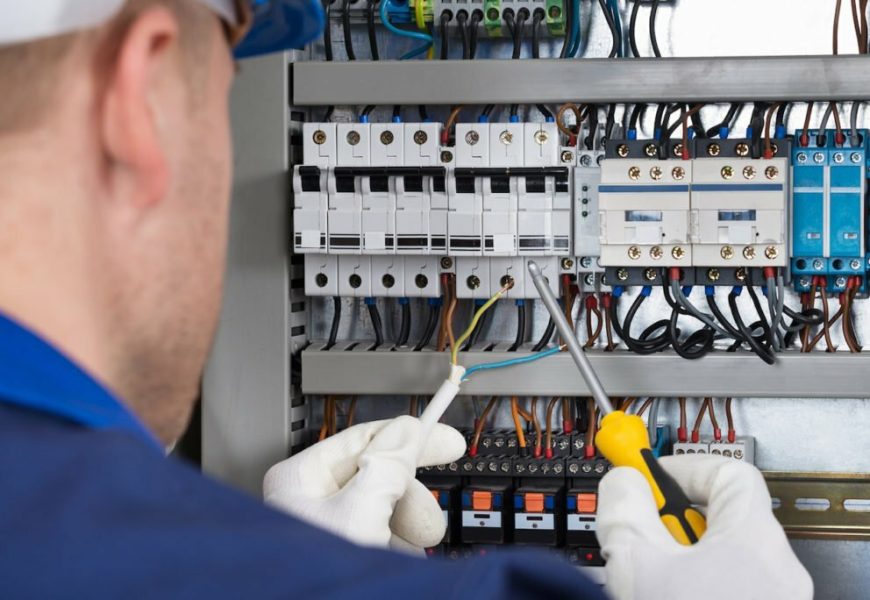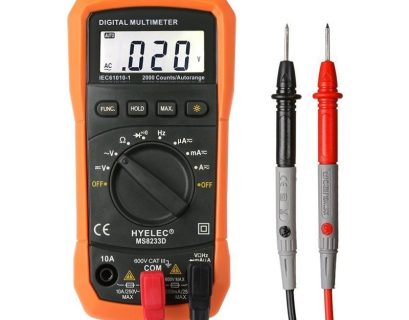1. Introduction to Electrical Services
1.1 What Are Electrical Services?
Electrical services encompass a wide range of activities related to the installation, maintenance, and repair of electrical systems and components. Electrical services are crucial for ensuring that electrical systems in residential, commercial, and industrial settings function safely and efficiently.
1.2 Why Are Electrical Services Important?
Proper electrical services help prevent electrical hazards, ensure energy efficiency, and maintain the safety and functionality of electrical systems. From preventing electrical fires to optimizing power usage, these services are vital for everyday living and business operations.
2. Types of Electrical Services
2.1 Residential Electrical Services
2.1.1 Home Wiring and Rewiring
Home wiring involves the installation of electrical systems in new homes or the updating of existing systems. Rewiring may be necessary to replace outdated or faulty wiring.
2.1.2 Lighting Installation and Repair
This includes installing new light fixtures, repairing existing ones, and upgrading lighting systems to improve energy efficiency and aesthetics.
2.1.3 Electrical Panel Upgrades
Upgrading an electrical panel can improve the capacity of your home’s electrical system, accommodate new appliances, and ensure safety.
2.2 Commercial Electrical Services
2.2.1 Office Wiring and Electrical Setup
Commercial spaces require specialized wiring and setups to handle higher electrical loads and meet business needs.
2.2.2 Energy Efficiency Solutions
Commercial electrical services often include energy audits and the implementation of energy-saving solutions to reduce operational costs.
2.2.3 Emergency Lighting and Backup Systems
Ensuring that emergency lighting and backup systems are functional is crucial for the safety and continuity of commercial operations.
2.3 Industrial Electrical Services
2.3.1 Industrial Machinery Wiring and Maintenance
Industrial facilities often use complex machinery that requires specialized wiring and regular maintenance to ensure optimal performance.
2.3.2 Power Distribution Systems
Power distribution systems in industrial settings need to be robust and reliable to support large-scale operations.
2.3.3 Safety Inspections and Compliance
Regular safety inspections are essential to ensure compliance with industry standards and to prevent accidents and downtime.
3. Choosing the Right Electrical Service Provider
3.1 Qualifications and Certifications
When selecting an electrical service provider, it’s important to ensure they have the necessary qualifications and certifications. This ensures they are skilled and knowledgeable about current electrical codes and standards.
3.2 Experience and Reputation
Choosing a provider with a solid reputation and extensive experience can lead to higher-quality work and better service. Look for reviews, testimonials, and past project examples.
3.3 Cost and Value
While cost is an important factor, it’s crucial to balance it with the value provided. Sometimes, a higher upfront cost may be worth it for better quality and reliability.
4. Common Electrical Issues and Solutions
4.1 Flickering Lights
Flickering lights can be caused by loose connections, faulty bulbs, or issues with the electrical circuit. A qualified electrician can diagnose and fix the problem.
4.2 Circuit Breaker Tripping
Frequent tripping of circuit breakers may indicate an overloaded circuit or a fault in the wiring. An electrician can identify and resolve the underlying issue.
4.3 Electrical Outlets Not Working
Non-functional outlets can result from wiring issues or damaged outlets. Replacing or repairing them is essential to restore functionality.
5. The Importance of Regular Electrical Maintenance
5.1 Preventative Maintenance
Regular maintenance helps identify potential issues before they become major problems. This includes checking wiring, outlets, and electrical panels.
5.2 Safety Inspections
Routine safety inspections are crucial for preventing electrical hazards and ensuring compliance with safety standards.
5.3 Upgrading Systems
As technology evolves, upgrading electrical systems can improve efficiency and safety. Regular assessments can help determine when upgrades are needed.
6. DIY vs. Professional Electrical Services
6.1 Risks of DIY Electrical Work
While DIY projects can be tempting, electrical work requires specialized knowledge and skills. Attempting complex tasks without proper training can lead to safety hazards and costly mistakes.
6.2 When to Call a Professional
For major electrical issues, installations, and repairs, it’s best to hire a licensed electrician. Professionals have the expertise to handle complex tasks safely and efficiently.
7. Conclusion
Electrical services play a crucial role in maintaining the safety, functionality, and efficiency of electrical systems in various settings. Whether you need residential, commercial, or industrial services, choosing the right provider and ensuring regular maintenance can help prevent issues and ensure optimal performance. Investing in quality electrical services is essential for a safe and efficient electrical system.
FAQs
1. What should I do if my circuit breaker keeps tripping?
If your circuit breaker keeps tripping, it may be due to an overloaded circuit or a fault in the wiring. It’s best to consult a licensed electrician to diagnose and fix the issue.
2. How often should I have my electrical system inspected?
It’s recommended to have your electrical system inspected at least once every few years, or more frequently if you experience any issues.
3. Can I perform electrical work myself?
While minor tasks like changing a light bulb can be done yourself, more complex electrical work should be handled by a licensed professional to ensure safety and compliance with codes.
4. How do I know if I need an electrical panel upgrade?
If your electrical panel frequently trips, shows signs of wear, or if you’ve added new appliances that require more power, an upgrade might be necessary. A professional can assess and advise you.
5. What are some signs that my wiring needs to be replaced?
Signs that your wiring may need replacement include frequent circuit breaker trips, flickering lights, or visible damage to the wiring. Consult with an electrician if you notice any of these issues.

















